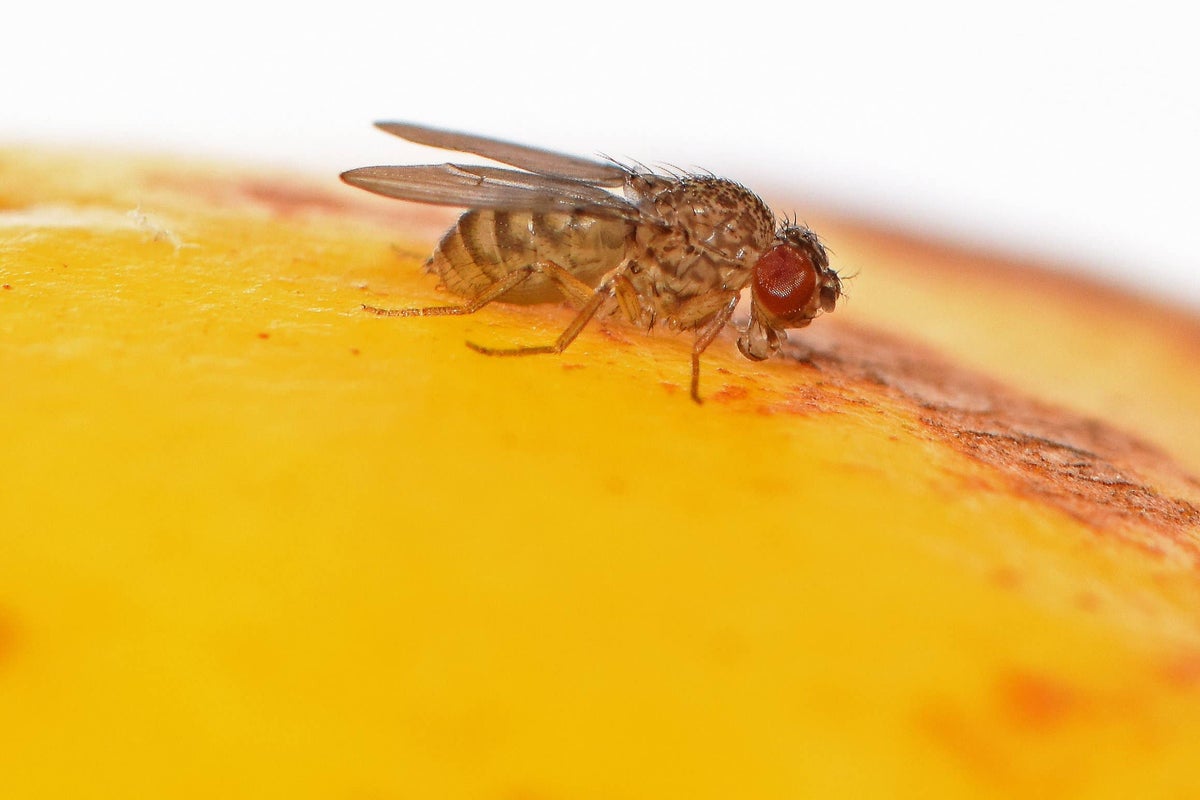
Scientists have engineered “virgin birth” in female fruit flies after pinpointing its genetic cause.
Like most animals, fruit fries reproduce sexually – where the egg is fertilised by sperm.
Researchers from the University of Cambridge identified the genes that were switched on – or off – when females reproduced without males.
It was very exciting to see a virgin fly produce an embryo able to develop to adulthood, and then repeat the process— Dr Alexis Sperling
The team then altered genes in another female fruit fly species, which were able to produce offspring without fathers.
Dr Alexis Sperling, a researcher at the University of Cambridge, said: “We’re the first to show that you can engineer virgin births to happen in an animal – it was very exciting to see a virgin fly produce an embryo able to develop to adulthood, and then repeat the process.”
Also known as facultative parthenogenesis, virgin birth has been documented in species of birds, fish, lizards and snakes, and more recently in crocodiles.
It is the process by which an egg develops into an embryo without fertilisation by sperm.
The offspring of virgin births are not exact clones of their mother but are genetically very similar. They are also always female.
It is thought that virgin births can be a survival strategy for species living in isolation and on the brink of extinction.
For the study, the researchers performed genome sequencing – a method used to determine the entire genetic make-up of an organism – of two types of the fruit fly, Drosophila mercatorum.
The first type reproduces with males while the second produces offspring only through virgin birth.
Using this method, the researchers identified the genes responsible for virgin birth.
The team then altered the genes of another fruit fly species – Drosophila melanogaster – with the aim of inducing virgin birth.
Dr Sperling said the female flies “waited to find a male for half their lives – about 40 days – but then gave up and proceeded to have a virgin birth”.
The researchers also found up to 2% of the second generation of female flies with the ability for virgin birth produced offspring, which only took place when no males were around.
These flies mated and reproduced when male flies were available.
Dr Sperling said she hopes to eventually investigate why virgin birth in insects may be becoming more common, particularly in pest species.
She said: “If there’s continued selection pressure for virgin births in insect pests, which there seems to be, it will eventually lead to them reproducing only in this way.
“It could become a real problem for agriculture because females produce only females, so their ability to spread doubles.”
The study, which involved more than 220,000 virgin fruit flies and took six years to complete, is published in the journal Current Biology.
Dr Hannah Maude, Research Associate, regulatory genomics & metabolic disease, Department of Metabolism, Digestion & Reproduction, Imperial College London, said that for those wondering whether the same would happen for humans, the answer is unlikely.
She added: “Our diversity protects us: having two copies of the DNA not only provides a back-up for harmful DNA variants (found in every person) but is necessary for so-called imprinted regions which are specifically active from the maternal or paternal DNA copy.
“Nevertheless, this exciting research furthers our understanding of reproduction in the animal kingdom.”







